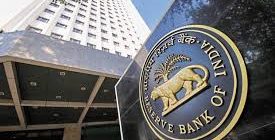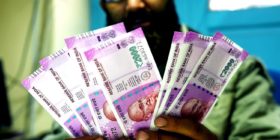There is a trace of pride in Nisha Chaurasiya’s voice as she complains of how she and her co-workers in an anganwadi in Rajnandgaon district of Madhya Pradesh struggled to provide food to babies and children, and to expectant women, since demonetisation took effect on November 8.
“The self-help groups borrowed money from everybody, stood in bank queues, pleaded with officials and even spent from their own meagre savings to feed the children and expecting mothers,” she says.
“We have managed somehow, though the food may have fallen short.”
Chaurasiya is one of the 14 lakh anganwadi workers in the country running the world’s largest infant and child nutrition program called Integrated Child Development Service (ICDS). In a country where more than half the children below six years are anaemic and over a third wasted (weight lower in proportion to height), the program is a life line. But the sudden ban on high value currency notes left the ICDS network floundering and kids hungry.
November saw a six per cent decline in the number of children drawing nutrition from the anganwadis compared to the previous month, according to monthly data put out by the ICDS which is run by the women and child development ministry. That translates to nearly 16 lakh children who did not get the prescribed cereals and vegetables. They would also not have had their health checkup done and perhaps skipped immunisation shots.
Compared to average monthly attendance of children in anganwadis for the past eight months, the decline in November is a chilling 16 percent for boys and 14 percent for girls. That’s about 23 lakh boys and 19 lakh girls. Part of the reason is a continued squeeze on funds for the program. This was hugely magnified due to the currency ban.
Chaman Ara an anganwadi worker from Moradabad in Uttar Pradesh told TOI that they are unable to get money out of banks and there is a limit to how much credit foodgrain or vegetable dealers can give.
“Mostly we were forced to give only dry food to the kids. The government should have made some arrangement for the sake of children at least,” she said angrily.
Anganwadis also provide nutrition supplementation to pregnant women and nursing mothers, an important function because anemia and malnutrition is rampant among mothers, with resulting deprivation for their babies too. Demonetisation has had a much more serious effect on this. November saw a decline of 10% compared to October in the number of pregnant women getting meals and health checkups at anganwadis, as per the ministry’s data. Among nursing mothers, the dip was 9%.
Manju Kumari, an anganwadi worker in Madhepura, Bihar told TOI that they are unable to give food to expecting mothers because there is no money. Even for children, food has become available from Dec 19 after a month’s gap, Kumari said.
Parwati Devi another worker in Bahraich district of UP said that they have been unable to withdraw money for expecting mothers from the bank because the village Pradhan, a joint account holder, is not interested in helping.
Chaurasiya too complained that the local Grameen (rural) Bank was unable to give more than Rs.10,000 despite standing in queues for hours.
“So we had to cut down on the food for mothers – the children have to be fed first,” she said.






Leave a reply